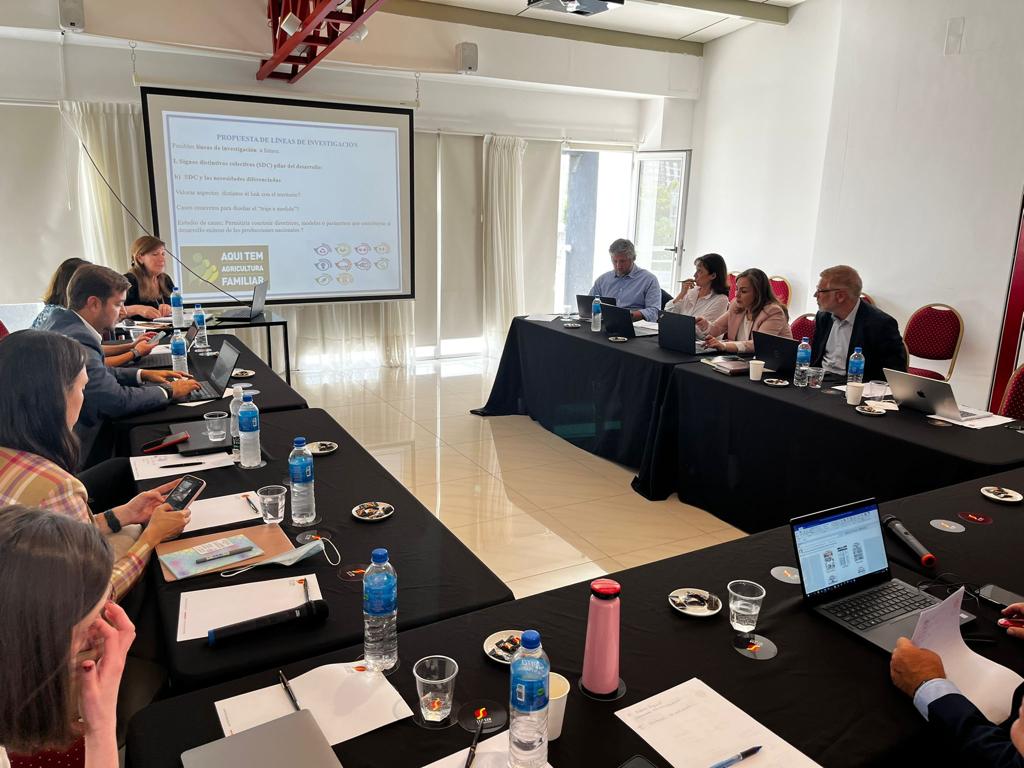The Initiative presented a summary of the common elements emerging from the comparative study, on which general reflections were made:
- It is necessary to provide training on the subject at the national level, both to judges and to the legislative branch.
- In general, a lack of state support is identified at the national level.
- There is a lack of economic studies. It is necessary to have economic studies that provide data on the impact of CDS on sustainable development.
- It would be necessary to think of a constructive regional collaboration: INVENTORY of products with potential in the region.
- Consider that the countries of the region do not have similar realities in this area. In many cases they face inequality among producers and economic difficulties.
- It is necessary to develop associativism. This cannot be dealt with by IP offices. Interdisciplinary work is needed.
- There are sufficient legal instruments in our countries. But how can these instruments be used to promote development?
- The instruments must be tailored to the needs, which differ from country to country, region to region.
- It would be interesting to integrate technical standards into the CDS system.
- The administration and control of the CDS is important. There are critical points. Public-private administration.
- A study of successful and unsuccessful cases is suggested. This would help to understand the reasons that lead to success or failure.
Regarding possible lines of research, the feasibility of a regional system of Collective Distinctive Signs (SDGs) was discussed. It would be interesting in order to arrive at the construction of the regional system, to have previously:
- Inventory of potential products.
- Case studies to analyze examples of success.
- Exchange of regional information, which will favor regional knowledge of national systems and protected products/services.
- Guidelines for Harmonization of Good Practices including: technical standards, labeling, quality.
- Minimum requirements/standards in order to bridge inequalities between the systems in force in the countries.
Regarding other possible lines of research, the following were discussed: Implementation of instruments with respect to differentiated needs.
- SDC must be adapted to each particular need.
- Orienting public policies to encourage the use of available instruments (collective marks, seals).
- CDS can value issues beyond the link to the territory (producer profile, production processes, use of traditional knowledge, etc.).
- Importance of case studies
The legal approach. Protection standards and their incorporation into national legislation.
The incorporation of the sui generis system through TRIPS has had an impact on current regulatory frameworks. It would be interesting to examine in greater depth how countries have made TRIPS commitments compatible with existing standards.
